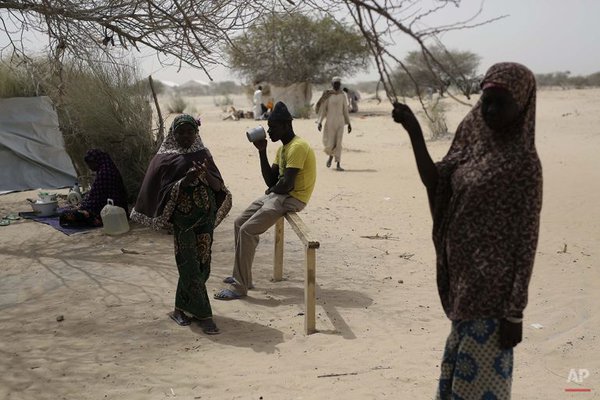The United Nations Organization warns of
"emergency levels of severe acute malnutrition" and
"famine" in Borno State, Nigeria, affecting over a quarter of a
million people directly and indirectly, some 3.8 million. The situation is
nearing calamitous proportions and the international community, as usual, has
failed to honor the appeal.
NATO countries alone spend one point two trillion USD
each and every year on their military budgets. So far the UNICEF appeal for
funds to feed the needy and hungry in Nigeria, mainly children, has gathered a
paltry 23 million USD of the 55.5 million requested. Such is the response of
the international community in 2016.
A very serious
situation
The situation is serious, very serious, and deteriorating,
specifically in 15 camps in Nigeria's Borno State, which hold some 275,000
people. The Nigerian government has already declared a food and nutrition
emergency and the UNO's Central Emergency Response Fund has already paid 13
million dollars to deliver life-saving assistance to a quarter of a million
people in the Lake Chad Basin. But there are some 3.8 million people in the
region, all of them facing food insecurity.
The United
Nations Children's Fund, UNICEF, has reported "alarming levels of severe
acute malnutrition" in Borno State. The situation is the result of
violence perpetrated by Boko Haram and also the onset of the lean season, after
the harvest
Lake Chad is drying up
The other problem is that Lake Chad is
disappearing. Houses which a generation ago were lapped by the waters of the
Lake are today one hundred meters away in the sands. In under fifty years, the
lake has shrunk by ninety per cent, to one tenth of its previous size, which
used to be 25.000 square kilometers. Human activities, climate change and a
lack or severe depletion in rainfall have reduced the water levels drastically.
Meanwhile
population growth in the region has soared. This has put extra pressure on the
resources, and the decreasing water level has compounded the problem, creating
soil salinity which in turn has led to reduced harvests and livestock deaths.
As the terrorist forces of Boko Haram recede,
the UNO finds
more and more pockets of people in desperate conditions. The total population
affected is nearly four million, many of whom are fleeing to the cities to
avoid the lack of food. Many millions more are still fleeing Boko Haram. Many
children under two years of age are not expected to survive. Munir Safieldin,
acting UN Humanitarian Coordinator for Nigeria, has stated that "The
humanitarian crisis in north-east Nigeria is massive and alarming: 15 million
people are affected by the violence instigated by Boko Haram, including seven
million people who need urgent humanitarian assistance," adding
that "Unless we scale up now, seven to eight children will die of
severe acute malnutrition every hour; 184 children will die every day. We need
resources now to scale up our current response."
Some sites show 33 per cent moderate acute malnutrition and
11.5 per cent severe acute malnutrition among the under-two-year-olds. With the
environmental situation not improving, the Lake continuing to shrink and Boko
Haram mounting increasing attacks, the prospect is not good for the people of
this region.
Let us not forget them.

Emoticon Emoticon